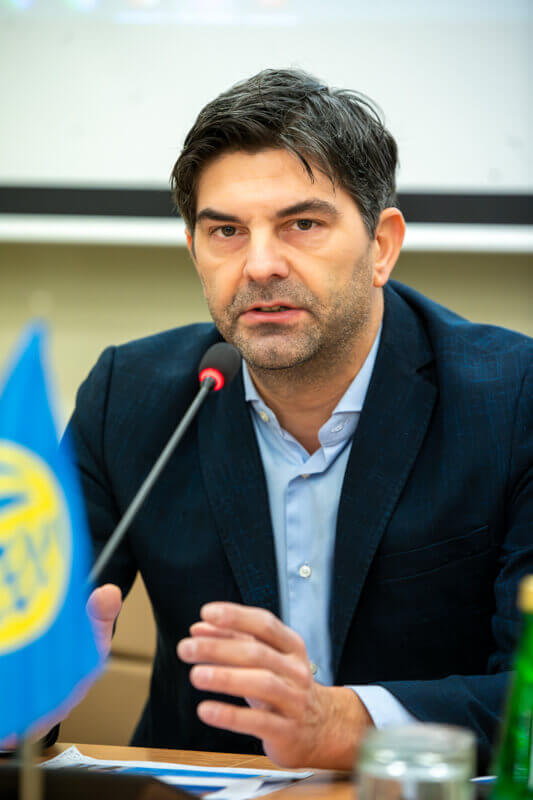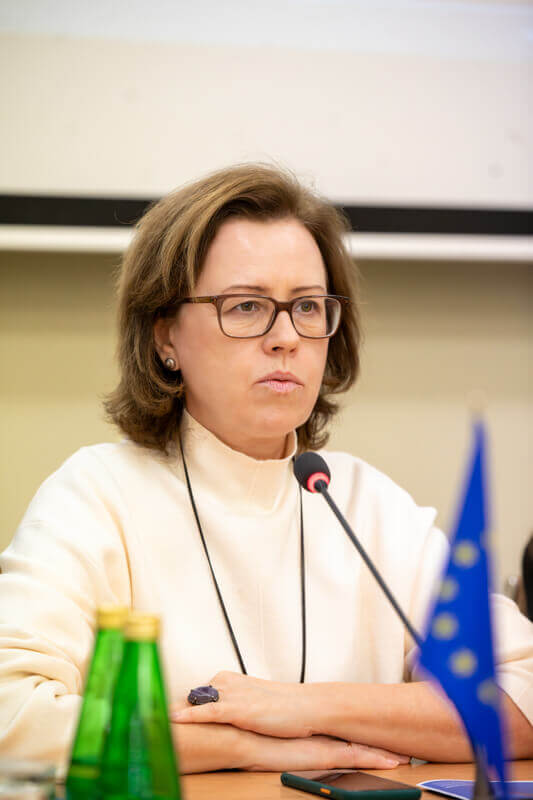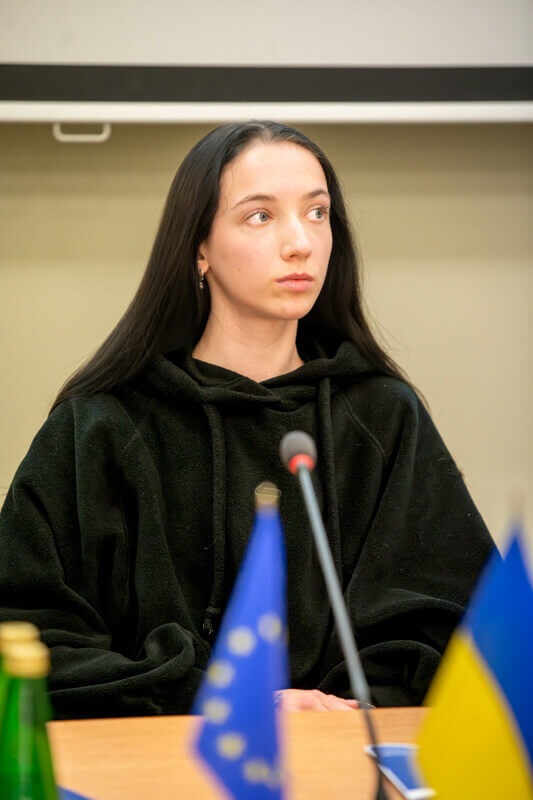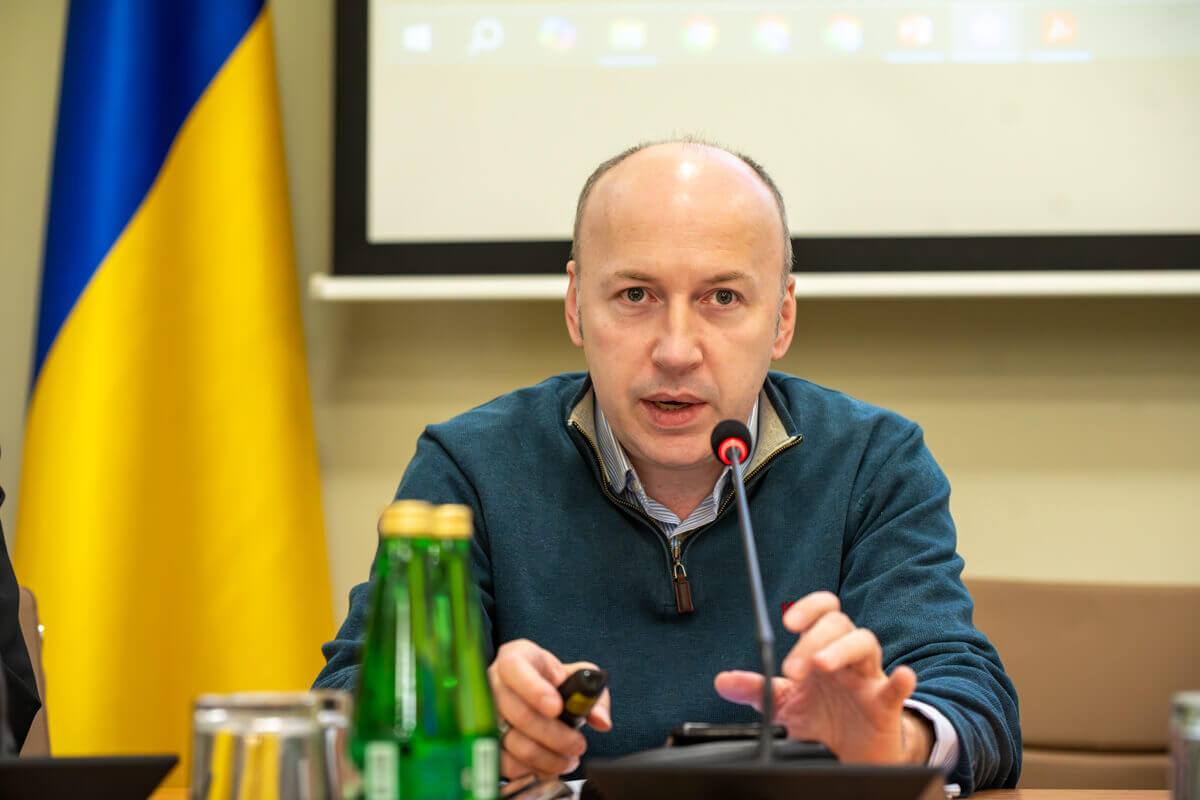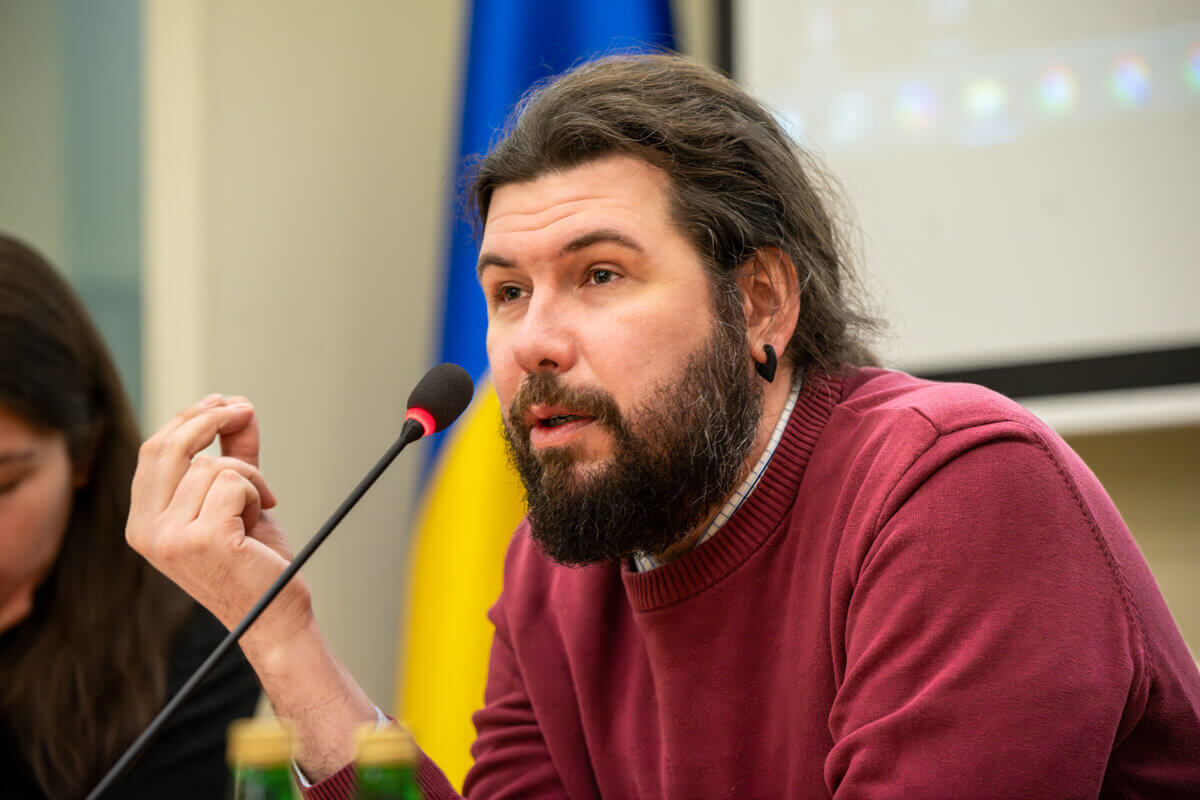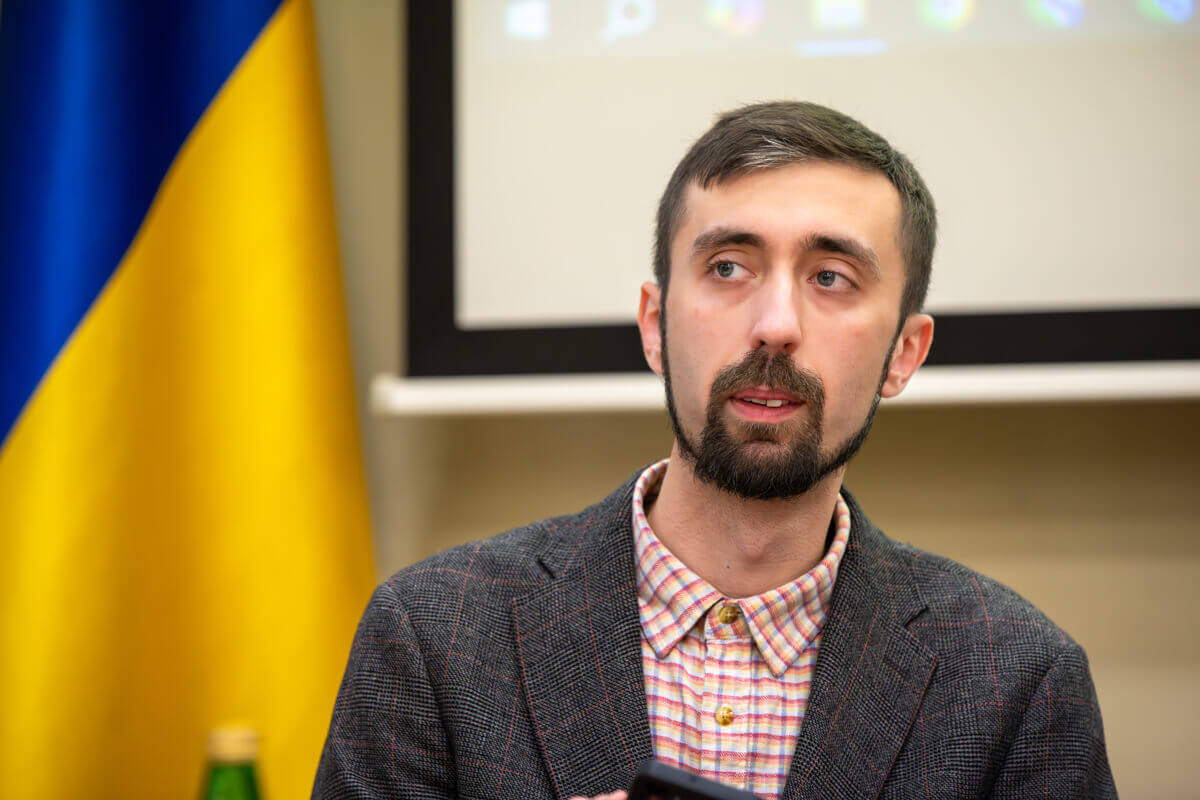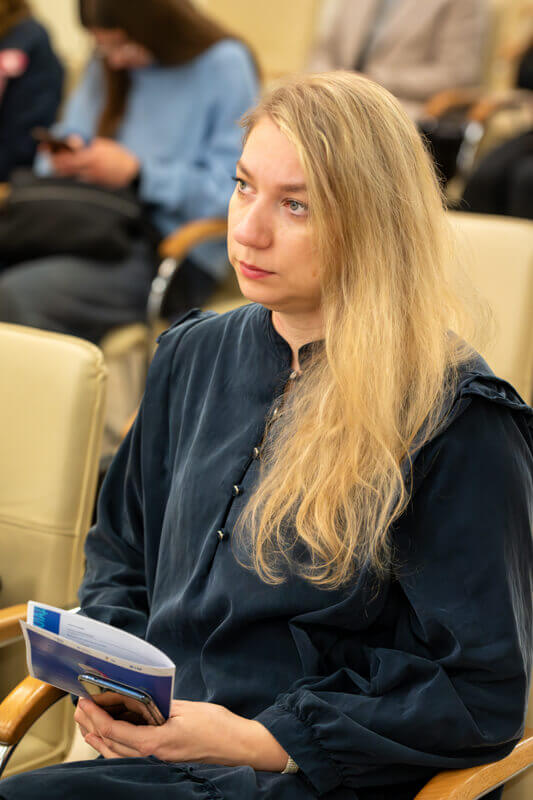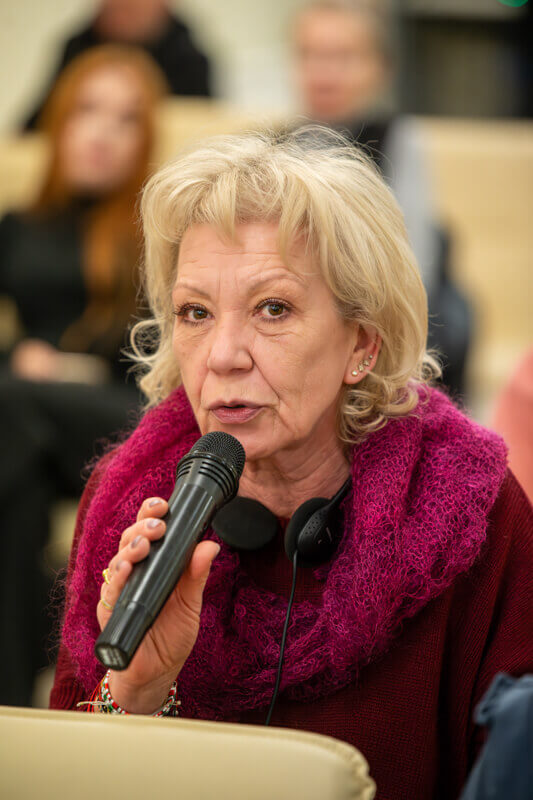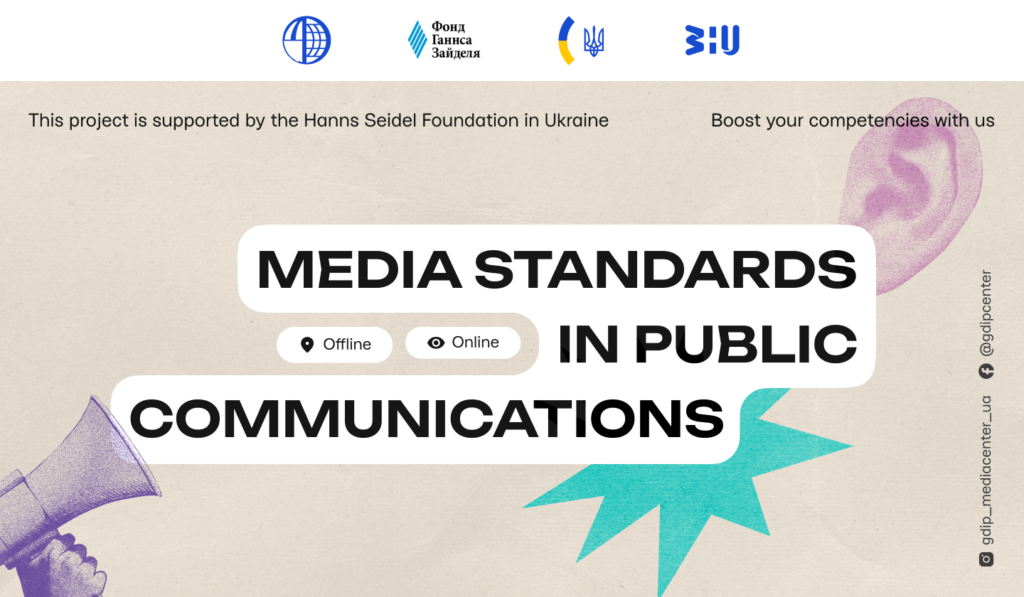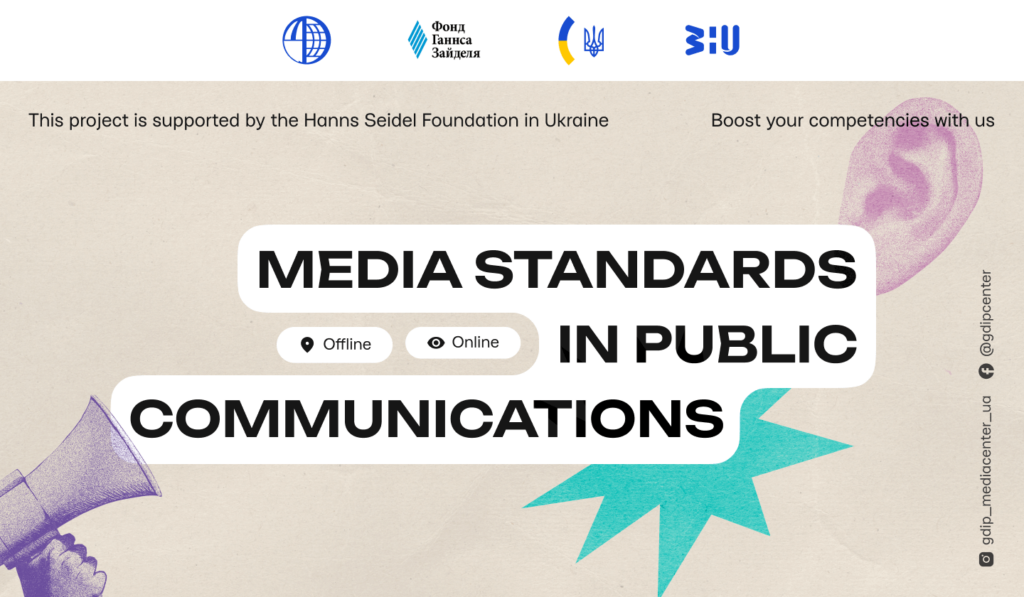On Tuesday, 26 November 2024, the Media Center hosted a workshop entitled European Principles on the Conduct of Journalists and War, organised by the GDIP team with the support of the German Hanns Seidel Foundation in Ukraine, the Ministry of Foreign Affairs of Ukraine and the West Ukrainian National University.
The event’s objective was to enhance the professional competence of journalists by applying international journalism standards, help participants acquire practical skills for working in wartime, and develop an ethical approach to reporting, creating visual materials and memorialising the war.
Olena Maksymova, Project Coordinator, Deputy Director of the Hanns Seidel Foundation in Ukraine, welcomed the workshop participants and spoke about the foundation’s projects, including the promotion of European principles and approaches, and noted the importance of such an awareness-raising initiative for journalists to understand European journalism standards in the face of global challenges:
‘We understand that journalism in times of war is not just a profession, but a huge social responsibility. Today, Ukrainian citizens are not only mentally but also physically dependent on the information they consume. And international politics today also depends on the information presented to it. Therefore, it is very important that it is truthful and objective, because current global information challenges make the media not only a news source, but also a powerful tool for influencing public opinion and all processes taking place in the world. This workshop will help us understand how to keep high standards of the journalistic profession and prevent manipulation and disinformation in such a challenging environment.’
In the course of the event, expert presentations were delivered by Nicolò Gasparini, press attaché – acting head of the press and information section of the EU Delegation to Ukraine, and Serhii Hrytsenko, strategic communications officer at the EU Delegation to Ukraine, who spoke about the principles of high-quality journalism, interaction with specialists through organising training sessions and working trips, as well as methods of countering disinformation. Olha Kyrylenko, war reporter at Ukrainska Pravda, shared her experience of covering objective and truthful information on the battlefield free of censorship by the authorities, while Ihor Burdyha, Deutsche Welle correspondent in Ukraine, described the standards of international journalism in covering the war and conveying the truth to a foreign audience. Olena Zhylun, scriptwriter of media products, community relations manager at Veteran Hub, shared her experience of communicating with soldiers, veterans and their families and spoke about the ethical aspect of covering traumatic stories. In their presentations, Otar Dovzhenko, media expert, creative director of Lviv Media Forum, and Lina Kushch, first secretary of the National Union of Journalists of Ukraine, spoke about sensitive content, moderation in social media, the importance of protecting heroes and journalists while covering events, observing the chain of command and respect for those injured and killed in the war. Ivan Stychynskyi, chief specialist of the department for the organisation of historical research and analysis of Ukrainian state-building, Department of scientific and institutional support of national memory policy at Ukrainian Institute of National Memory, presented 10 principles of memorialisation for creating common remembrance and value orientations. Bohdana Makarchuk, head of design at Svidomi online media, co-founder of Yakoho bisa? Media, spoke about creating visual materials while respecting the principles of informativity, clarity and reliability, and conducted a comparative analysis of the visual approaches of famous media outlets.
The workshop participants were eager to ask the speakers questions and share their own stories from the professional experience.


